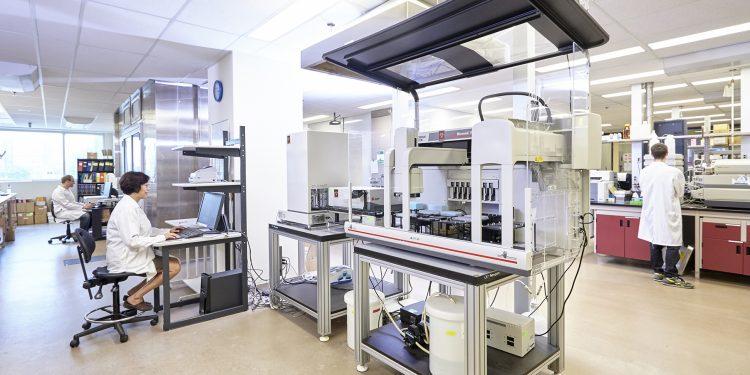Scientists have utilized artificial intelligence (AI) to identify a brand-new antibiotic that can eliminate a deadly species of superbug. The AI system played a crucial role in narrowing down thousands of potential chemicals to a select few that could be tested in the laboratory. The result of this innovative approach is abaucin, an experimental antibiotic with potent properties, which will undergo further testing before being used in medical applications.
This breakthrough has significant implications, as researchers in Canada and the US highlight the immense potential of AI in accelerating the discovery of new drugs. It represents a revolutionary force in the field of science and medicine, showcasing how AI can revolutionize drug development.
The urgent need for new antibiotics is driven by the growing resistance of bacteria to existing drugs. Acinetobacter baumannii, a particularly problematic species of bacteria, has been a focus of the researchers’ efforts. This superbug is known to cause infections in wounds and pneumonia, and it has been identified by the World Health Organization as a “critical” threat.
To discover a new antibiotic, the scientists trained the AI system using thousands of drugs with known chemical structures. They manually tested these drugs on Acinetobacter baumannii to identify those that could inhibit or kill the bacterium. The AI system learned the chemical features necessary for attacking the superbug, and it was then used to analyze the effectiveness of 6,680 compounds with unknown properties. Remarkably, the AI system generated a shortlist of potential antibiotics in just an hour and a half.
The researchers further examined 240 compounds in laboratory experiments, leading to the discovery of nine promising antibiotics. One of them, abaucin, exhibited exceptional potency. It demonstrated the ability to treat infected wounds in mice and successfully eradicated Acinetobacter baumannii samples from patients.
While the discovery of abaucin is groundbreaking, the researchers emphasize that there is still work to be done. The antibiotic will need to undergo further refinement in the laboratory and undergo rigorous clinical trials before it can be prescribed to patients. It is projected that the first AI-driven antibiotics could become available by 2030.
The precision of abaucin is noteworthy. Unlike many antibiotics that have broad effects, abaucin specifically targets Acinetobacter baumannii, making it harder for drug resistance to emerge and potentially leading to fewer side effects. The AI-powered screening process allows for the evaluation of tens of millions of compounds, a task that would be impractical using traditional manual approaches.
This breakthrough discovery holds tremendous promise in the fight against superbugs and the ongoing battle against antibiotic resistance. The researchers aim to expand their AI-aided antibiotic discovery efforts to other problematic bacterial species, such as Staphylococcus aureus and Pseudomonas aeruginosa. The use of AI in this context represents a significant step forward in combating antibiotic-resistant infections and revolutionizing the field of medicine.



